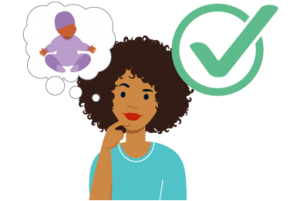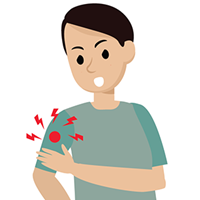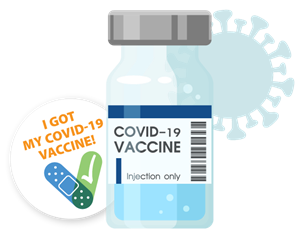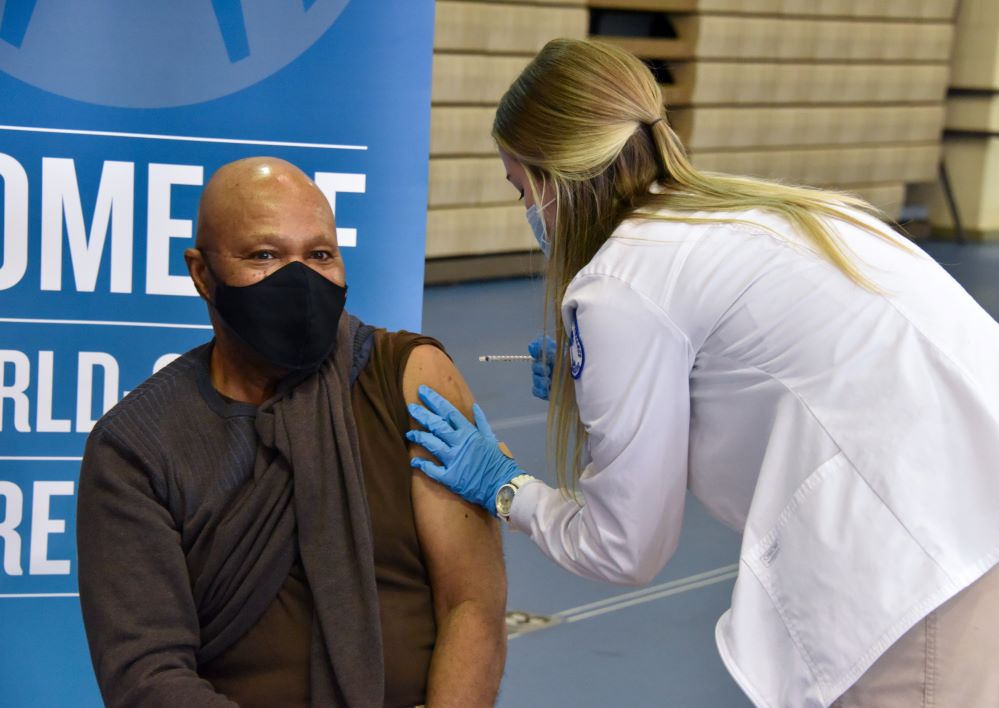LAST UPDATED: Sept. 15, 2021
Health experts continue to recommend vaccination to protect against COVID-19, including the Delta variant. However, misconceptions about the vaccine remain.
MYTH 1: I already had COVID-19, so I must have antibodies. I don’t need the vaccine, right?
Vaccination is recommended regardless of prior infection with COVID-19, as researchers still do not know how long natural immunity lasts. According to Johns Hopkins, immunity from natural infection can start to decline after about six months.
Studies have shown that vaccination provides a strong boost in protection in people who have recovered from COVID-19. Therefore, the vaccine is recommended for those who have already had COVID-19 as long as 90 days have passed since infection.
MYTH 2: The COVID-19 vaccine causes infertility.
There is no evidence that the COVID-19 vaccine causes infertility. According to Johns Hopkins, a false report on social media contributed to this misinformation. The false report wrongly equated the spike protein on the virus that causes COVID-19 with a spike protein that supports the placenta during pregnancy (called “syncitin-1”).
Pregnant people are encouraged to discuss vaccination with their health care providers.
MYTH 3: I can’t afford the vaccine because I don’t have insurance.
The COVID-19 vaccine is completely free of charge. According to the CDC, “COVID-19 vaccines are available for everyone at no cost. Vaccines were paid for with taxpayer dollars and will be given to all people living in the United States, regardless of insurance or immigration status.”
MYTH 4: The vaccine came out too quickly; it must be unsafe.
The COVID-19 vaccine was developed quickly for several reasons:
- The virus that causes COVID-19 (SARS-CoV-2) is related to the coronaviruses that caused previous outbreaks of severe acute respiratory syndrome (SARS) and Middle East respiratory syndrome (MERS). Therefore, scientists already had experience studying similar coronaviruses and developing vaccines against them. This prior experience “helped to accelerate the initial development of the current COVID-19 vaccines.”
- All vaccines go through three phases of clinical trials, performed one at a time. But because the COVID-19 pandemic was/is an international emergency, the three clinical trial phases overlapped (and volunteers were more efficiently contacted), saving a considerable amount of time. However, no trial phases were skipped, and all were successfully completed.
- The COVID-19 vaccine was prioritized and well-funded from the start. According to the CDC, the U.S. government “invested substantial resources for both manufacturing and distribution of COVID-19 vaccines,” which allowed manufacturing to begin when the vaccines were still in their last phase of clinical trials. This meant distribution could begin as soon as the FDA authorized each vaccine.
MYTH 5: Severe side effects are likely.
Like all medications and vaccines, side effects may occur. Side effects represent a natural reaction to the vaccine, and indicate the body is building immunity. However, severe side effects are not common — although they are possible.
As summarized by AU Health:
“Side effects are seen in about 25-30% of individuals that take the vaccine. These include fatigue, low-grade fevers, joint and muscle pains, and pain at the injection site. These generally last from one to three days and resolve on their own.”
MYTH 6: I’m too busy to get vaccinated. The appointments must take a while.
Although Pfizer-BioNTech and Moderna vaccines do require two appointments, they are quick at AU Health — most patients are finished in about 20 minutes. The vaccination itself takes about 5 minutes, then patients are asked to wait in an observation area for 15 minutes.
MYTH 7: It’s a good idea for me to “wait and see” with the vaccine. I’ll let others get vaccinated first, then see how everything works out.
While vaccination is a personal choice, health experts still strongly encourage vaccination. Half of the total U.S. population has already been fully vaccinated against COVID-19, but researchers estimate that about 70% to 85% of the country needs to achieve immunity for COVID-19 to stop spreading through communities. This concept is known as herd immunity.
Vaccination is the best way to protect against serious COVID-19 infection, and tremendously lowers risk of hospitalization and death. According to the New England Journal of Medicine, mRNA vaccines like Pfizer-BioNTech and Moderna are 95% effective in preventing infection from the original COVID-19 strain (alpha), and still have an impressive 88% efficacy against the Delta variant.
MYTH 8: The vaccine will mutate my genes.
No, the COVID-19 vaccine does not interact with a person’s genes. As summarized by AU Health, the Pfizer-BioNTech and Moderna COVID-19 vaccines are synthetic mRNA (messenger RNA) vaccines that contain biochemical instructions for making protein antibodies.

The Johnson & Johnson’s Janssen COVID-19 vaccine is a viral vector vaccine, which uses a modified version of a virus other than SARS-CoV-2 — this harmless virus is called the “vector” — to deliver important instructions to cells.
Both mRNA and viral vector vaccines do not interact with DNA in any way. Vaccine material never enters the nucleus of the cell, where DNA is housed.
Learn more about mRNA and viral vector COVID-19 vaccines.
This content was reviewed for accuracy by AU Health and AU Student Health Services.
Find more COVID-19 resources and schedule a vaccination through AU Health. Find resources to promote vaccination here and at the U.S. Department of Health and Human Services.
 Augusta University
Augusta University




